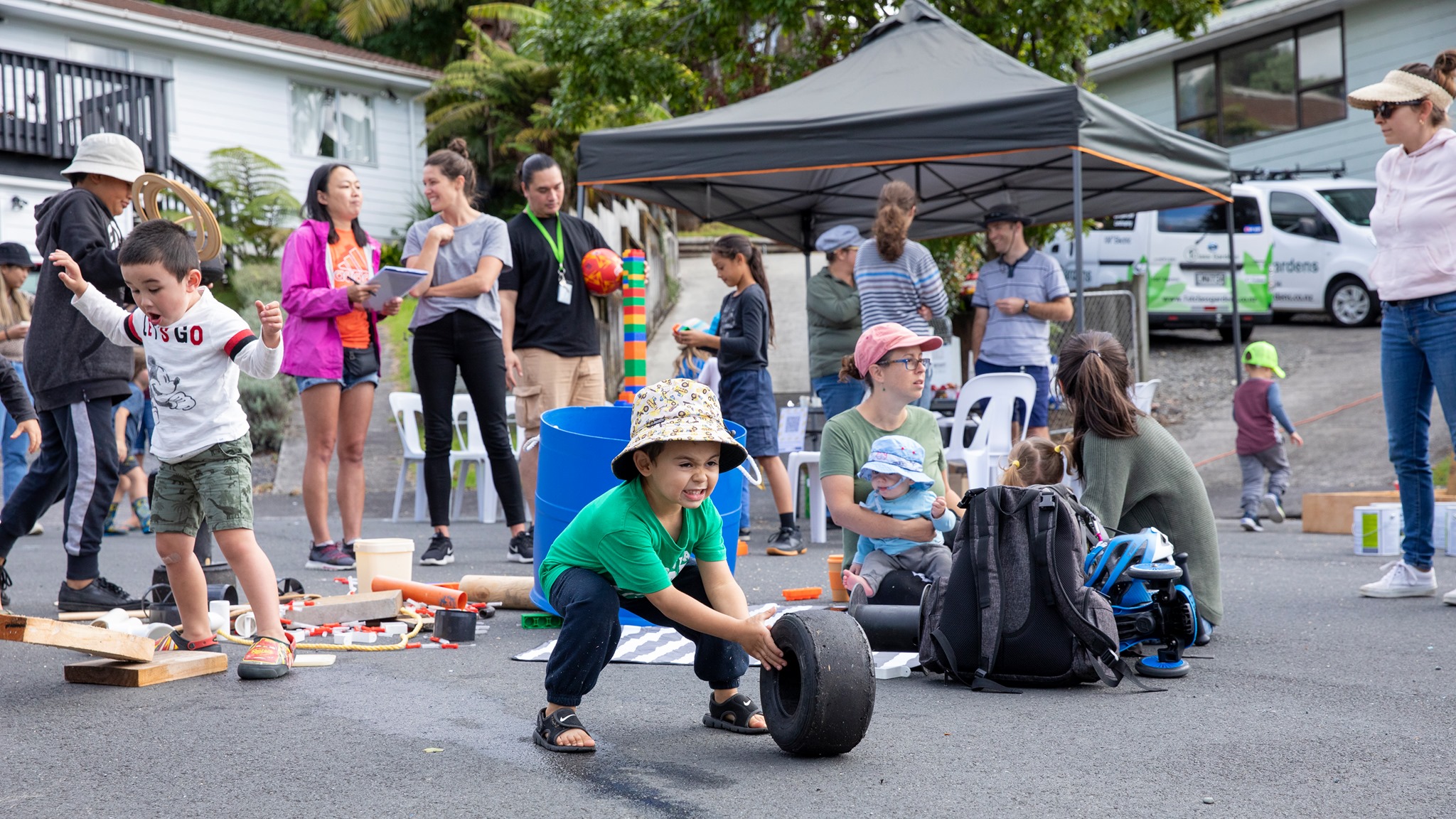When I was growing up (a long time ago), when you moved house to a new suburb or city you would normally make friends at your new school and neighborhood through playing. As these connections developed the parents would meet and get to know each other and thus the new family become a part of that neighborhood community.
In my last blog article, ‘Play and Natural Disasters or Human Made Crises’, I mentioned about play during the Holocaust. George Eisen1 mentions the importance of play in preserving community in the ghettos, stating “On the face of it, the building of playgrounds was absurd, almost delusional, particularly at a time when thousands had already perished. However, playgrounds, just like some cultural activities, became a part of the campaign to preserve a community. . .”
Early Childhood Ireland2 in their article ‘Why Play?’ state, “It is a way of creating community so that children develop a sense of identity and belonging.” Play England3 add to this by saying “For adults too, children’s play can help to build good social networks, as it provides them with opportunities to interact with one another at places children play.” The UK charity Living Streets4 in the report ‘No Ball Games Here’ show evidence that the decline in play in public spaces and the street has led to poorer relations within neighborhoods. In many cities around the world there are attempts to reverse this by organizing play events in neighborhoods. Pat Rumbaugh5 in her blog article about the benefits of these play events writes, “The most obvious benefit is when we hold play days; close streets to play and join already organized events by adding play activities we get people of all ages out playing.” In the article she goes on to quote several citizens of a city that have attended various play events with one saying, “Playful city programs build trust, enhance communications and strengthen community.”

Children play with loose parts from a Magic Play Box Mini at a Play Streets event in 2021.
In early 2021, Sport Waitākere-Healthy Families Waitākere piloted the Play Streets project where several neighborhoods had a street closed to traffic and a play event held. These events included having a Magic Play Box Mini funded for the neighborhood. During these events there were adult neighbors that connected for the first time after living in a street for several years. Later that year a Radio NZ6 podcast involved an interview with Waka Kotahi (NZ Transport Authority) about the Play Streets, with them stating the purpose as promoting children to play outside and neighbors to connect. In a more recent article, Colleen Hawkes7 writes about Waka Kotahi’s community initiative called Reshaping Streets (developed out of the Play Streets pilot) and which Auckland Council has taken on board as policy. ‘The aim of which is to get both kids and parents out of their homes and into the streets.’ The policy is also to get a ‘Play Lense’ on new developments.
Earlier in 2023, Kainga Ora (NZ’s national housing provider) ordered a Magic Play Box Mini for one of their new housing developments in West Auckland with a view to include play in events to connect the community. The value of loose parts (junk) play was witnessed at an existing Kainga Ora development. Kainga Ora had provided some large skip bins for residents to put rubbish and junk household items into. The residents noticed that the kids were pulling some of the junk out of the skips and playing with it over extended periods of time. Kainga Ora are starting to see the value of play and street events to building community.
Kids naturally are curious and want to explore. If let outside to play, they will explore the neighborhood and connect with other kids and build friendships/bonds through play. If we also encourage events for all residents to play the same will happen with adults.’
By: Greg Gurau, Magic Play Box guy
References:
- Eisen, G. (1990). Children and Play in the Holocaust: Games Among the Shadows, University of Massachusetts Press.face
- Early Childhood Ireland. Why Play?ie. https://www.earlychildhoodireland.ie/learning/publications-and-resources/practice-ideas/play/
- Cleave, J. (2010). Community play: A literature review. Play England. http://www.playday.org.uk/wp-content/uploads/2015/11/Community-play-a-literature-review.pdf
- Living Streets. (2009). No Ball Games Here.org.uk. https://www.livingstreets.org.uk/media/1404/noballgames.pdf
- Rumbaugh, P. (2016). The Benefits of Play Events in Your Community. Psychology Today. https://www.psychologytoday.com/us/blog/moral-landscapes/201601/the-benefits-play-events-in-your-community
- (2021). Play streets: reclaiming the roads from cars. rnz.co.nz. https://www.rnz.co.nz/national/programmes/ninetonoon/audio/2018824948/play-streets-reclaiming-the-roads-from-cars
- Hawkes, C. (2023). Waka Kotahi initiative: Yes, children, you can play in the street. rnz.co.nz. https://www.rnz.co.nz/news/national/496849/waka-kotahi-initiative-yes-children-you-can-play-in-the-street

